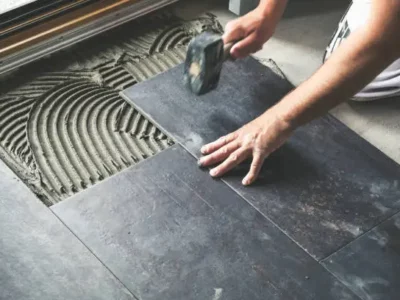For most families, a home is much more than the focal point of daily life – it is also a major asset worth protecting and enhancing. And, in today’s seller’s market, investing in a home improvement project can yield unprecedented returns. No wonder home renovation spending has surged over the past months!
At the same time, after having endured the economic hardships deriving from the pandemic-induced economic crisis and the rising inflation, many homeowners find themselves wondering how to afford the next home upgrade.
That’s where cash-out refinance comes in.
What Is Cash-Out Refinancing? An Overview
Cash-out refinance is a financial instrument that allows homeowners to access cash by taking advantage of the equity gained by paying down the current mortgage’s principal or by experiencing an increase in the property’s value.
When refinancing your home from cash, you’ll be taking out a greater mortgage to replace the existing one, while cashing out the difference. This means that you might deal with a greater loan to pay back and higher interest rates.
While a cash-out refinance allows you to use the funds received in any way you want, it is important to understand that this cash represents the wealth you have built over the years by repaying your original mortgage – so, it should be used wisely.
Luckily, today’s housing market is booming, and house prices have been increasing at an unprecedented annual rate of 17.5%. In turn, investing in a value-boosting home improvement project can yield significant returns and help you build long-term wealth.
Tapping Into Your Home’s Equity for Your Home Improvement Project
As home prices continue to rise, tapping into your home equity to afford a major renovation project can enhance your living environment and boost your property’s market value. However, before diving headfirst into this project, it is important to understand what to expect.
First, consider getting a precise estimate of how much your upcoming project will cost, and how much equity you hold in your property. This will tell you if it makes sense to reinvest your assets. Then, be clear on what the cash-out process refinance entails.
Here’s an example.
Let’s say your home has an appraised value of $200,000, and you still have $90,000 to repay on your current mortgage. By refinancing your home with a loan-to-value of 80% (the standard for most lenders), you’ll be able to borrow $160,000.
A portion of this amount will be used to repay what you still owe ($90,000 in this example), and the remaining part of your borrowed amount can be directed toward your renovation project.
What You’ll Need To Refinance Your Home
Refinancing your home and taking out a replacement mortgage is one of the most convenient ways to afford your renovation projects. Nonetheless, choosing a provider with favorable home loan refinance rates can make a difference in how much you’ll pay back.
What’s more, your current financial situation counts. Ideally, you’ll want to tick the following boxes:
- A high credit score of 700 or higher
- A debt-to-income ratio below 40%
- A stable job and income
- Owning at least 20% of your home
Should You Refinance Your Home To Fund Your Home Improvement Project? The Pros and Cons To Consider
Just like all financial strategies, refinancing your mortgage to fund a home improvement project has its pros and cons.
A cash-out refinance, when used to boost your home’s value, can give you access to the money needed for a major renovation, can further build your equity and allow you to benefit from some tax deductions.
On the other hand, taking out a larger mortgage means you’ll owe more, have a greater debt-to-income ratio, and have to start rebuilding equity in your property. What’s more, taking out a mortgage might cause you to run into high closing costs, which can eat into your equity (or expected cash amount).
While a cash-out refinance might be a convenient solution for most homeowners looking to enhance their property’s value through a renovation, it might not be the best solution for everyone. Consider working with a tax or financial advisor to understand the implications and benefits of this choice.




















